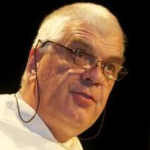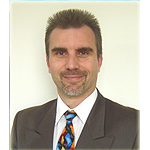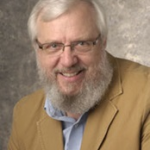Deprecated: trim(): Passing null to parameter #1 ($string) of type string is deprecated in
/home/aoiusa/public_html/wp-content/plugins/sexybookmarks/public.php on line
388
Deprecated: trim(): Passing null to parameter #1 ($string) of type string is deprecated in
/home/aoiusa/public_html/wp-content/plugins/sexybookmarks/public.php on line
394
Deprecated: trim(): Passing null to parameter #1 ($string) of type string is deprecated in
/home/aoiusa/public_html/wp-content/plugins/sexybookmarks/public.php on line
400

Rev. Wojciech Giertych
Important points that the Papal Theologian Rev. Wojciech Giertych made are:
1) the idea that the homosexual condition should be considered as a central identifying characteristic of human personhood diminishes the humanity of the person making the claim;
2) the increasing reach of the State into private life results in a lowering of moral standards. I argue this same point elsewhere with the additional warning that same-sex marriage represents an arrogation of State power over human morality (see Homosexual Marriage at the Dusk of Liberty).
Fr. Giertych said:
The 61-year-old of Polish background said, “I’ve seen the Communist ideology, which seemed to be so powerful, and it’s gone! Ideologies come and go, and they have the idea of changing humanity, of changing human nature. Human nature cannot be changed; it can be distorted. But the elevation of perversion to the level of a fundamental value that has to be nurtured and nourished and promoted – this is absolutely sick.”
“The Church, standing up to this ideology which we are seeing now in the Western world, the Church is saying something very normal and humane, which corresponds to the understanding of humanity, which humanity has had for millennia, long before Christ, long before the appearance of Christianity,” he said. “So it’s not a question of the Church fighting the ideology, it’s a question of the distortion of humanity, and the Church standing up in defence of human dignity.”
Source: LifeSite News
VATICAN CITY, July 2, 2013 (LifeSiteNews.com) – In an interview with LifeSiteNews.com, Papal Theologian Rev. Wojciech Giertych, spoke of the need to treat persons with homosexual inclination with dignity, adding that dignity means telling them the truth. What truth? “Homosexuality is against human nature.” And what is needed is to “pastorally help such people to return to an emotional and moral integrity.” (see video of the interview)
Appointed in 2005 by Pope Benedict XVI, it is Fr. Giertych’s job – Theologian of the Papal Household – to review the texts given to the Pope for his speeches for theological accuracy. LifeSiteNews was granted access into the papal palace wherein Fr. Giertych has his apartment for the interview.
Asked about the problem of homosexuality, gay ‘marriage’ and their incursion on relgious freedom, Fr. Giertych noted “this is not an issue which is reacting against the Church’s teaching – this is a fundamental anthropological change.” It is, he said, “a distortion of humanity which is being proposed as an ideology, which is being supported, financed, promoted by those who are powerful in the world in many, many, countries simultaneously.”
“The Church,” he added, “is the only institution in the world which has the courage to stand up to this ideology.”
Very good practical reflections starting at around 10:00.
He continued, noting that the increasing role of the state in society has resulted in a substantial lowering of ethical standards:
“Now, what we are observing in many countries world-wide, certainly in the 20th and the 21st century, there is an enormous extension of the responsibility of States. Now, the more the State is encroaching on the economy, on family life, on education – the State is saying that only the State has the monopoly to decide about these things. The more the State is omnipotent, the more the ethical standards are lowered, because it’s impossible to promote high ethical standards by the State.”
The 61-year-old of Polish background said, “I’ve seen the Communist ideology, which seemed to be so powerful, and it’s gone! Ideologies come and go, and they have the idea of changing humanity, of changing human nature. Human nature cannot be changed; it can be distorted. But the elevation of perversion to the level of a fundamental value that has to be nurtured and nourished and promoted – this is absolutely sick.”
“The Church, standing up to this ideology which we are seeing now in the Western world, the Church is saying something very normal and humane, which corresponds to the understanding of humanity, which humanity has had for millennia, long before Christ, long before the appearance of Christianity,” he said. “So it’s not a question of the Church fighting the ideology, it’s a question of the distortion of humanity, and the Church standing up in defence of human dignity.”
Speaking of practicing homosexuals Fr. Giertych said, “of course they have to be treated with dignity, everybody has to be treated with dignity, even sinners have to be treated with dignity, but the best way of treating people with dignity is to tell them the truth.”
“And if we escape from the truth we’re not treating them with dignity,” he added.
The papal theologian drew an analogy to smoking saying that helping people stop smoking is not denying their dignity.
He said:
“Homosexuality is against human nature. Now, there are many things that people do that are unnatural – smoking cigarettes is also unnatural. You can live with the addiction to tobacco, you can die of it, but there are people who are addicted to tobacco, yet they live and we meet with them and we deal with them and we don’t deny their dignity. So certainly people with the homosexual difficulty have to be respected … And so the important thing is how to pastorally help such people to return to an emotional and moral integrity.”
Fr. Geirtych noted that for many there is a lessened culpability for falling into a homosexual lifestyle due to hardships endured.
Homosexual activity is also tied to the contraceptive culture, Geirtych explained:
“…we began talking about contraception, and homosexuality is tied with it because since contraception destroys the quality of relationships amongst the spouses, and it generates sexual license outside marriage, and it reduces sexuality to an easy source of pleasure with no responsibility, that pleasure without responsibility is never satisfying, and it generates like a drug. It generates a hunger for even more pleasure, which is even more not truly satisfying, not giving ultimate happiness, and so there is a search for more perverted types of sexual pleasure, which can never fulfill the human person.”
The Pope’s theologian also explained the distinction between the words “homosexual” and “gay” and the danger to someone who identifies themselves as being “gay”.
“…in the American language you have a distinction between the word ‘homosexual’ and ‘gay’. A homosexual is a person who has, to some extent, this homosexual condition. Somebody may have this difficulty, and his friends, his neighbors will not know about this. He’s dealing with this in cooperation with the grace of God and may come out of this difficulty and come back to normal human relationships. Sometimes adolescents, at the moment when their sexual sensibility is appearing, if they have been distorted by others they go through a phase of difficulty in this field. But as they mature they will grow out of it. Whereas a ‘gay’ is somebody who says, ‘I am like this, I will be like this, I want to be treated like this, and I want special privileges because I am like this.’ Now if somebody is not only homosexual, but a gay, declaring, ‘This is how I am, and I want this to be respected legally, socially and so on’ – such a person will never come out of the difficulty.”
He also spoke of the danger of identifying with the homosexual condition as if it was the “supreme expression of the identity of the individual” which would deprive the individual of healing and happiness.
The papal theologian concluded noting that Christ is both the model for a healthy humanity and the source of healing for distortions of humanity. “Christ shows us a humanity which is supremely transformed from within by the divinity, “ he said. “Now, we have access to the grace of God through our faith, through the sacraments, and, by living out the grace of God, that grace of God heals whatever distortions we may have, whatever difficulties we may have, on the condition that we initiate, we commence the pilgrimage, we start the journey of living out our lives with the grace of God.”
See the video with all of Fr. Giertych’s comments on this issue.

 Source: The Voice Blog | Chris Banescu
Source: The Voice Blog | Chris Banescu


